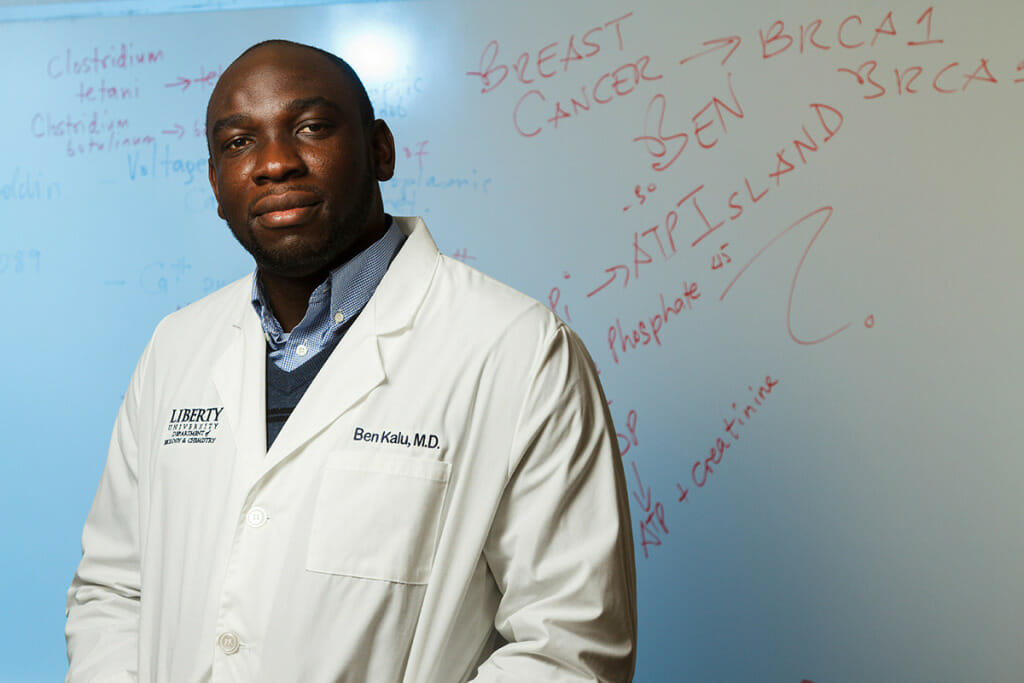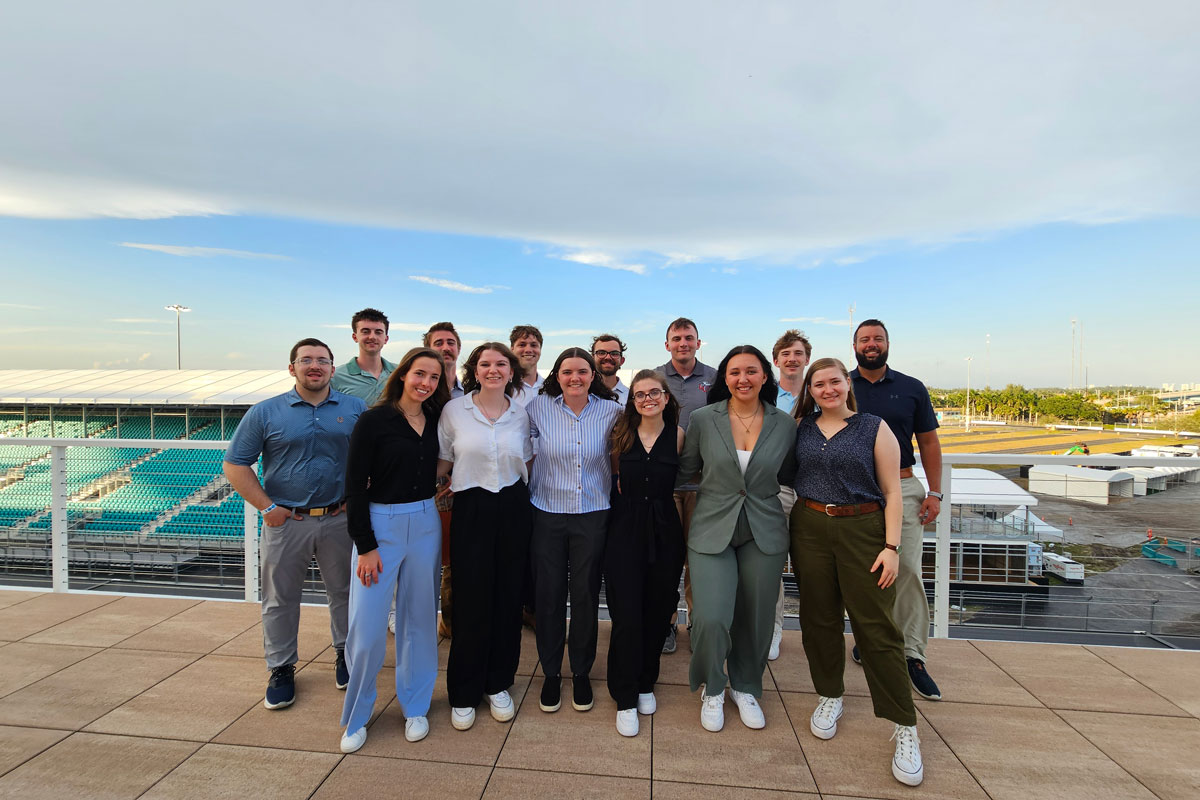Search News Archives
Filter News Articles
Additional Navigation
Biology professor receives fellowship for study in Nigeria
November 6, 2014 : By Office of Communications & Public Engagement
 Dr. Ben Kalu, an assistant professor in Liberty University’s Department of Biology & Chemistry.” />Dr. Ben Kalu, an assistant professor in Liberty University’s Department of Biology & Chemistry, will be spending his Christmas break studying the molecular signatures of breast cancer in his homeland of Nigeria.
Dr. Ben Kalu, an assistant professor in Liberty University’s Department of Biology & Chemistry.” />Dr. Ben Kalu, an assistant professor in Liberty University’s Department of Biology & Chemistry, will be spending his Christmas break studying the molecular signatures of breast cancer in his homeland of Nigeria.
Kalu, who graduated from Abia State University in Nigeria in 2007 with an M.D. in medicine and surgery, has taught medical biochemistry and physiology at Liberty for the past three years. He will be collaborating with one of his former professors, Dr. Charles Adisa, in the surgical oncology unit of ABSU’s teaching hospital beginning Dec. 8.
Kalu and Adisa are among the second group of recipients of project funding through the new Carnegie African Diaspora Fellowship Program, which selected 33 scholars based in the United States and Canada to collaborate with universities in their native African countries on research, graduate teaching, training, and mentoring activities in fields ranging from the arts and humanities to sciences, engineering, and technology.
“I trained as an M.D. in Nigeria, so I know the challenges of medical education there and what the deficits are,” Kalu said. “Having had some graduate training in the U.S., I know how I can help, and this fellowship grant provides me that opportunity. It’s something that’s been on my heart for quite a while, and I think it’s the Lord who made it all work out.”
The winning proposals were submitted by 24 institutes of higher education in Ghana, Kenya, Nigeria, South Africa, Tanzania, and Uganda. The program, funded by the Carnegie Corporation of New York, is managed by the Institute of International Education (IIE) in collaboration with Quinnipiac (Conn.) University.
“Carnegie Fellowships are very prestigious. It’s a tremendous honor for him and particularly for the university,” said Dr. David DeWitt, professor and chair of the Department of Biology & Chemistry. “It’s further recognition of the quality of our faculty and particularly the area of biomedicine and molecular biology. I’m really excited to see continued success of our faculty and students and significant biomedical research being done. I anticipate Dr. Kalu will have some major research findings that, hopefully, will lead to better treatments for breast cancer in Africa.”
Breast cancer has the highest mortality rate amongst all cancers in Nigeria. Patients there have a particularly aggressive form that is resistant to chemotherapy. Drs. Kalu and Adisa will collect tissue samples from patients. Kalu will analyze them upon his return to Liberty in early January, using a gene sequencer. The objective is to develop more effective diagnostic and treatment strategies for women affected by the disease.
“This work will be a new area of research for me, but it’s something exciting,” said Kalu, whose specialization of study is alcohol-related liver disease. “The diseases are different, but they employ similar cell biology and molecular techniques.”
Beyond the research study, the professors will be training medical students and resident doctors in ABSU’s College of Medicine to carry on their work and send additional samples back to Liberty for Dr. Kalu to process.
Kalu said he feels called to serve as a mentor to aspiring physicians in the field.
“Since I came from there and now I’m here, I think just visiting and talking with the students will be an inspiration to them to know that, ‘Hey, I can make it,’” he said, noting his research and teaching opportunities at Liberty have equipped him for this project and his colleagues have challenged him to put his knowledge and expertise into action.
“Dr. DeWitt has been very encouraging, and the faculty we have here in the department are extremely supportive,” Dr. Kalu said. “Here, we’re not competing against each other, we are supporting one another to make progress. We are all doing it together because the truth is, we are all doing it for the Lord.”
During his stay in Nigeria, Dr. Kalu also plans to assist Dr. Adisa in developing a curriculum and eventually starting a biomedical research institute that would provide molecular genetics training for medical students and clinical training for resident doctors.
Kalu desires to see the exchange of educational and medical outreach continue well into the future, with Nigerian medical students coming to Liberty to learn new techniques and other Liberty faculty members visiting his homeland to teach in their areas of specialty.
“I’m hoping that this would be the beginning of collaborative research and effort between our department here and some of the medical schools and universities in Nigeria, where we can work on projects together to help advance medical science and, most importantly, to serve the Lord in that capacity,” he said.


